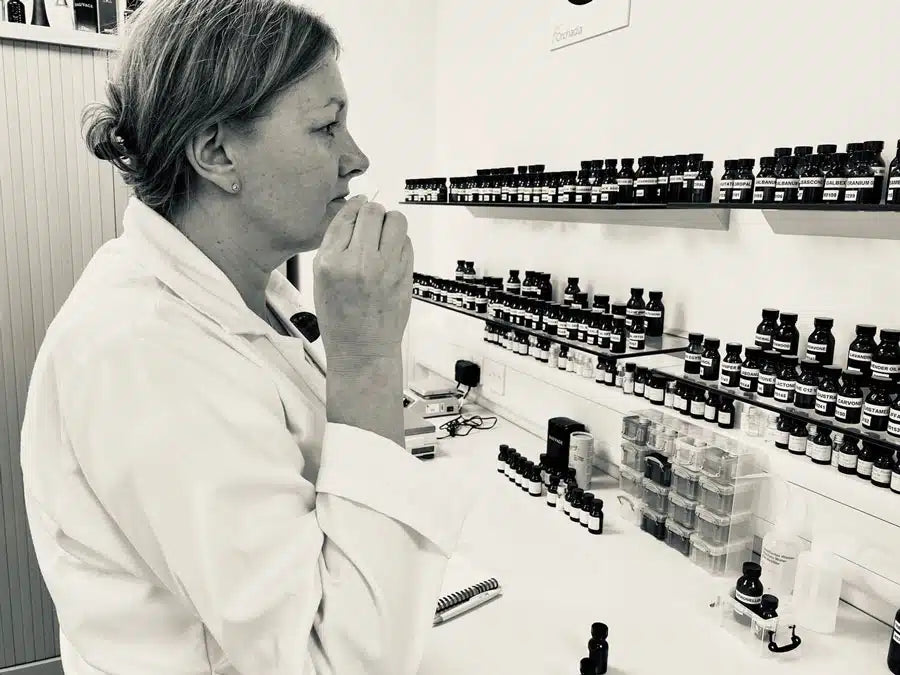Q&A with creative perfumer Penny Williams

When did your love of perfumery start?
I came into the perfumery business via serendipity at 19, not even realising what it really was. My love of perfumery is actually a love of story-telling, creation, people and the world. Through perfume you have a window into every aspect of life: science, fashion, history, farming, psychology and communication. Perfumery is endlessly fascinating and I can think of no better way to express the creative and analytical side of my personality.
What inspires the way you approach formulating a perfume?
First I seek to understand: what is the message, what is the story, can I feel it and what does it feel like? This is a multi-sensory input, including images, olfactory descriptors, emotional intent , ingredient ideas – which might relate to odour, but equally could relate to impression and colours, and who would wear it and why. Only some of this can be reflected in a brief, the rest is ‘feel’. Then, I would typically consult my odour memory for ingredients and accords which each could represent different elements and make an initial ‘sketch’, or first experiment. Upon smelling the first experiment, I get a sense of what’s missing or out of balance and experiment further until the scent makes me truly smile. Then I know the main work is done, and the next stage should be improvements and interpretations, during which stage it’s great to get input from others.
How do you work with Rebecca – can you talk us through the development of a scent from the design brief?
Rebecca and I work closely together, quite interactively. Initially Rebecca provides her thoughts about the intended fragrance including images, pack colours, ingredient ideas and the feelings it represents. We delve and debate, exploring what the elements mean, smelling fragrances and ingredients, often making adjustments or adding to the interpretation until it feels whole.
There is one special aspect which we discovered and fascinates me. With a particular fragrance, Rebecca asked me to describe it more fully, as an experiment, next to each ingredient in the fragrance a wrote note about the odour and or the reason it was used. I was concerned it would be impossible for anyone else to make sense of. However, Rebecca saw it and said it really allowed her to visualise the scent in the air in front of her eyes – really amazing!
All creative projects have their challenges. What was the biggest challenge working on To The Fairest fragrances?
The most difficult aspect relates to achieving the highest possible standard with each individual scent, to really capture the essence and message of each concept provided by Rebecca. It’s difficult to know when it’s finished and sometimes tempting to do just a bit more!
Tell me about your favourite in the collection?
It’s tricky to chose a favourite, however, if I’m allowed to pick two! The first favourite is Ordre Cosmique – it’s as much an image in my mind as it is a scent that I also love to wear. The second is Élan Vital, it’s unusual, draws you in to explore and feels the most like a journey.